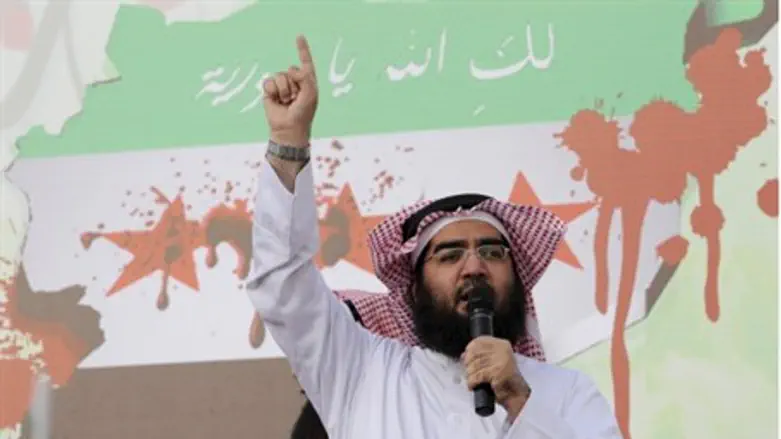
The U.N. Security Council is holding a special session to discuss the massacre of more than 90 people at Houla, Syria. One third of the dead were children.
The meeting, scheduled for 4:30 p.m. on Sunday, comes after Britain and France proposed a statement condemning the massacre. Diplomats said Russia would not agree to issue the condemnation until the head of the UN mission in Syria, Major General Robert Mood, gave a briefing on the situation there.
Prime Minister Binyamin Netanyahu's media adviser said Sunday that Netanyahu expressed his revulsion over "the ongoing massacre being perpetrated by the forces of Syrian President Assad against innocent civilians."
"Iran and Hizbullah are an inseparable part of the Syrian atrocities and the world needs to act against them," the Prime Minister said.
Outgoing Syrian opposition leader Burhan Ghalioun called on Sunday for a “battle of liberation” against Bashar Assad's regime unless the international community decides to intervene.
“I call on the Syrian people to lead a battle of liberation and dignity, relying on its own forces, on the rebels deployed across the country and the Free Syrian Army brigades and friends,” Ghalioun told a news conference in Istanbul.
In a meeting earlier with Turkish Foreign Minister Ahmet Davutoglu, Ghalioun said the uprising in Syria had reached a “turning point” following the killings at Houla on Friday and Saturday.
After an international outcry over the massacre, Damascus on Sunday denied its forces were responsible for the killing at Houla, blaming "terrorists" instead.
U.S. Secretary of State Hillary Clinton demanded that those who carried out the killings be brought to justice.
“The United States will work with the international community to intensify our pressure on Assad and his cronies, whose rule by murder and fear must come to an end,” she said.
France said it would call a meeting of the Friends of Syria, a group of Western and Arab countries that oppose Assad's rule.
The United Arab Emirates requested an urgent meeting of the Arab League. The head of the League, Nabil Elaraby, also called on the U.N. Security Council to intervene.